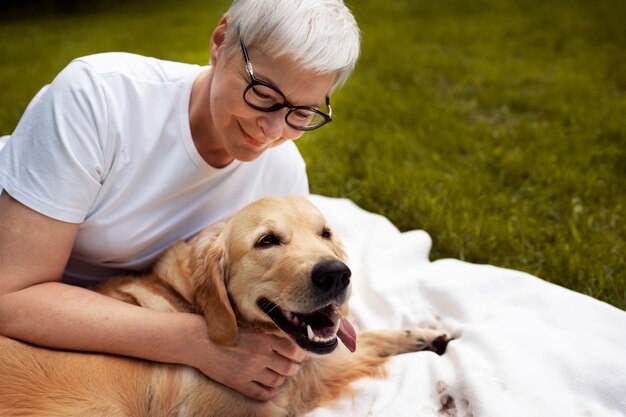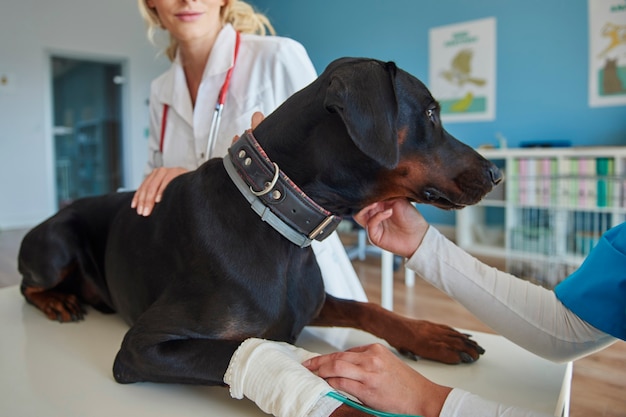How to Recognize Mobility Loss in Senior Pets


How to Recognize Mobility Loss in Senior Pets
As our beloved dogs and cats age, changes in their mobility can happen so gradually that you might not realize your companion is struggling until their quality of life is noticeably affected. At Alpha Animal Rehab & Fitness, located at 975 Bloomfield Ave, Suite 1, West Caldwell, NJ 07006, our veterinary professionals are dedicated to helping senior pets in West Caldwell and surrounding communities regain their confidence and independence through targeted therapy and rehabilitation. This guide will help you spot the early signs of mobility loss in pets, understand why these changes occur, and learn how specialized senior dog care and manual therapy can make a meaningful difference.
If you have noticed your pet slowing down, showing reluctance to jump or climb stairs, or having difficulty getting up, you are not alone. These are common concerns among pet owners seeking a rehabilitation vet near me. In this blog, we will discuss how to recognize early mobility concerns in senior pets, the underlying causes, available treatment options tailored to each pet’s needs, and the steps you can take to keep your companion comfortable and active for as long as possible.
Recognizing the Signs of Mobility Loss in Pets
Mobility loss in senior pets often develops so subtly that even the most attentive owners might miss the earliest indicators. Understanding what to look for can make a significant difference in your pet’s comfort, as early intervention leads to better outcomes. Key symptoms of mobility loss in pets include a noticeable hesitation or outright refusal to jump onto furniture or into cars, increased difficulty rising from a lying or seated position, and a tendency to slip or lose balance on smooth floors. Additional signs to watch for are limping, uneven gait, or favoring one limb over others. Some pets may become less interested in walks or playtime, preferring instead to rest or isolate themselves. Other common behaviors indicating discomfort are frequent licking or chewing at joints, vocalizing when moving, or showing signs of anxiety during activities that were previously routine.
Cats, in particular, may show less obvious symptoms. You might notice that your cat is no longer jumping up to their favorite window perch or is avoiding the litter box if it has high sides that are difficult to step over. These subtle changes are often the first indication that your pet is experiencing pain or decreased flexibility.
If you are noticing any of these concerns and searching for a “specialist vet near me,” it is important to remember that these signs do not have to be accepted as a normal part of aging. Many pets in West Caldwell and nearby communities have benefited from early recognition and intervention.
Understanding Why Senior Pets Lose Mobility
Mobility loss in senior pets can be caused by a variety of underlying conditions, many of which are manageable with the right approach. The most common cause is arthritis, a degenerative joint disease that leads to inflammation, stiffness, and pain. You may notice that your dog or cat seems stiff after resting or takes longer to get moving in the morning; this is often a prime indicator of arthritis setting in.
Other contributing factors include injuries such as cruciate ligament tears, which can result in sudden lameness, or chronic conditions like hip dysplasia that gradually worsen over time. Neurological disorders, including intervertebral disc disease (IVDD), can also play a significant role, leading to weakness in the limbs, changes in coordination, or even partial paralysis in severe cases.
It is also important to consider that weight gain, muscle loss, and reduced physical activity are all interconnected. As pets age, they naturally experience some decline in muscle mass, which makes it harder to support their joints and maintain balance. Obesity further increases the strain on already compromised joints, accelerating the progression of mobility issues.
If arthritis is suspected, you can learn more about the condition and its management by visiting our resource on arthritis management in pets. For specific concerns such as cranial cruciate ligament (CCL) tears or hip dysplasia, our team offers detailed information on CCL tear and hip dysplasia in pets to help owners understand these diagnoses.
Therapeutic Solutions: How Alpha Animal Rehab & Fitness Can Help
When mobility loss becomes apparent, a tailored approach is essential. At Alpha Animal Rehab & Fitness, our veterinary professionals create individualized rehabilitation plans that address the unique needs of each pet. Our focus is on restoring function, reducing pain, and enhancing overall quality of life, particularly for those seeking expert senior dog care in West Caldwell.
Therapeutic options involve a combination of manual therapy, therapeutic exercise, and advanced modalities such as laser therapy and underwater treadmill sessions. Manual therapy, including massage, stretching, and joint mobilization, helps relieve muscle tension, improve circulation, and maintain joint flexibility. If you are interested in learning about the benefits of manual therapy, our manual therapy services page provides more details on how these techniques can support your pet’s mobility.
Therapeutic exercise is another cornerstone of our treatment plans. Custom exercise routines are designed to rebuild strength, increase range of motion, and enhance balance. For example, a senior dog with mild arthritis might benefit from gentle incline walking or targeted limb strengthening under the guidance of our veterinary team. More information on how exercise can improve mobility is available on our therapeutic exercise service page.
For pets experiencing pain or inflammation, laser therapy offers a non-invasive solution to accelerate healing and reduce discomfort. This advanced technology uses focused light energy to stimulate cellular repair, decrease swelling, and promote faster recovery. Additionally, aquatic therapy with our underwater treadmill provides a low-impact environment for pets to exercise safely; the buoyancy supports their weight, allowing for gentle movement without the stress of gravity on their joints.
In cases where pets have more severe mobility challenges, such as after a CCL tear or with advanced hip dysplasia, supportive devices like carts, harnesses, or braces may be recommended. These aids can help pets remain active and engaged in daily activities, greatly improving their outlook and happiness.
Home Care and Prevention: Supporting Your Senior Pet’s Mobility
While professional rehabilitation is invaluable, there are many ways you can support your pet’s mobility at home. Steps include maintaining a comfortable environment by providing soft, supportive bedding and ensuring easy access to favorite resting places. Non-slip rugs or mats can help prevent falls on slippery floors, and ramps or stairs make it easier for pets to reach beds or couches without jumping.
A consistent exercise routine is crucial, tailored to your pet’s abilities. Gentle walks, short play sessions, and controlled movement exercises help preserve muscle mass and keep joints flexible. Weight management plays a vital role; feeding a balanced diet and monitoring calorie intake can prevent excess weight from putting additional strain on your pet’s joints. For pets with existing arthritis or joint concerns, you may want to review our tips for arthritis management in pets.
Regular check-ins with your primary care veterinarian are essential for monitoring your pet’s health and catching any new issues early. If your veterinarian recommends additional support, a referral to our rehabilitation specialists at Alpha Animal Rehab & Fitness can help your companion achieve the best possible outcome.
When to Seek Professional Veterinary Rehabilitation
It is natural to wonder when mobility changes warrant a visit to a rehabilitation specialist. As a general guideline, if your pet is experiencing difficulty rising, walking, or moving around the home, or if you have noticed a decrease in their activity level, it is time to reach out for help. Signs that require prompt attention include sudden or severe lameness, persistent pain, dragging of limbs, or any loss of bladder or bowel control. These symptoms can indicate underlying conditions that need immediate evaluation by a veterinary professional.
If you are searching for a “rehabilitation veterinarian near me,” know that you do not have to navigate this journey alone. Our veterinary team works closely with general practitioners to develop comprehensive care plans that address each pet’s unique needs. Early intervention with senior dog care in West Caldwell can make a significant difference in slowing disease progression, easing discomfort, and helping your pet stay active and engaged.
For specific situations such as intervertebral disc disease or cruciate ligament injuries, visiting our resources on intervertebral disc disease in pets and CCL tear can provide additional guidance on when specialized care is indicated.
Helping Your Senior Pet Thrive: Take the Next Step
Mobility loss in senior pets does not have to mean the end of an active, joyful life. By recognizing the signs of mobility loss in pets early and seeking expert guidance, you can help your companion remain comfortable, confident, and engaged in the years ahead. At Alpha Animal Rehab & Fitness, our compassionate veterinary professionals are committed to providing advanced rehabilitation services and senior dog care in West Caldwell, helping pets and their families enjoy the best possible quality of life.
If you have noticed any changes in your pet’s movement or are concerned about their ability to get around, we invite you to contact our team for an assessment. Taking action now can prevent further decline and open the door to new possibilities for your pet’s comfort and well-being. For more information about our specialized services, including manual therapy for pets, or to schedule a consultation, call (908) 454-2273 or visit us at 975 Bloomfield Ave, Suite 1, West Caldwell, NJ 07006.
Your pet deserves every chance to enjoy their golden years with comfort and dignity. Trust the expertise of a rehabilitation vet near me and see how specialized care in West Caldwell can help your senior companion thrive.
Disclaimer: This blog is intended for educational purposes only and should not replace professional veterinary advice. Always consult your veterinarian or a veterinary rehabilitation specialist for personalized recommendations regarding your pet’s health. For more information about senior dog care near me, visit our senior dog care service page.
References:
American College of Veterinary Sports Medicine and Rehabilitation , Mobility in Senior Pets
American Veterinary Medical Association , Caring for Senior Pets




